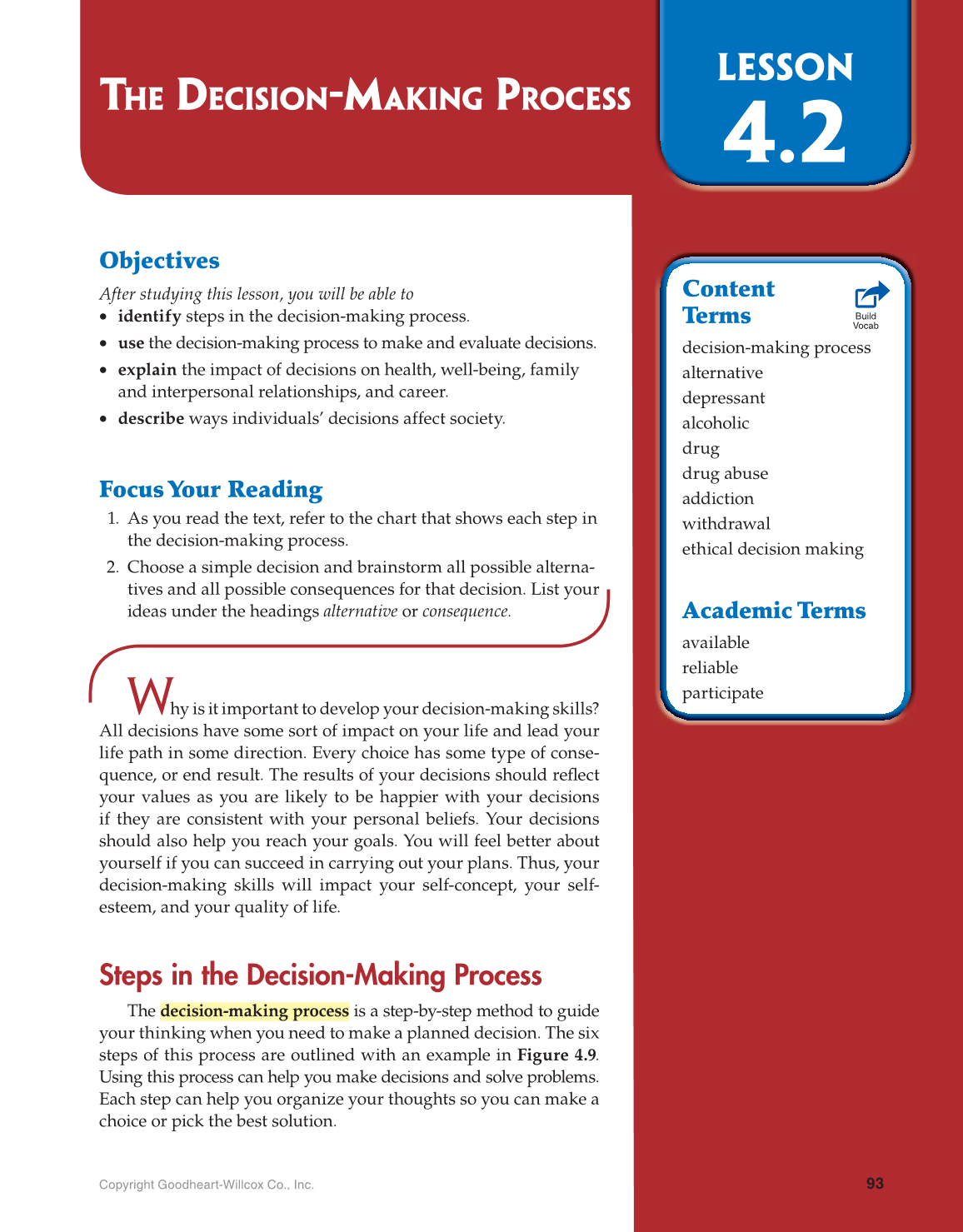93
Objectives
After studying this lesson, you will be able to
• identify steps in the decision-making process.
• use the decision-making process to make and evaluate decisions.
• explain the impact of decisions on health, well-being, family
and interpersonal relationships, and career.
• describe ways individuals’ decisions affect society.
Focus Your Reading
1. As you read the text, refer to the chart that shows each step in
the decision-making process.
2. Choose a simple decision and brainstorm all possible alterna-
tives and all possible consequences for that decision. List your
ideas under the headings alternative or consequence.
W
hy is it important to develop your decision-making skills?
All decisions have some sort of impact on your life and lead your
life path in some direction. Every choice has some type of conse-
quence, or end result. The results of your decisions should refl ect
your values as you are likely to be happier with your decisions
if they are consistent with your personal beliefs. Your decisions
should also help you reach your goals. You will feel better about
yourself if you can succeed in carrying out your plans. Thus, your
decision-making skills will impact your self-concept, your self-
esteem, and your quality of life.
Steps in the Decision-Making Process
The decision-making process is a step-by-step method to guide
your thinking when you need to make a planned decision. The six
steps of this process are outlined with an example in Figure 4.9.
Using this process can help you make decisions and solve problems.
Each step can help you organize your thoughts so you can make a
choice or pick the best solution.
T
HE
DECISION-MAKING PROCESS
LESSON
4.2
Content
Terms
decision-making process
alternative
depressant
alcoholic
drug
drug abuse
addiction
withdrawal
ethical decision making
Academic Terms
available
reliable
participate
Build
Vocab
Copyright Goodheart-Willcox Co., Inc.
